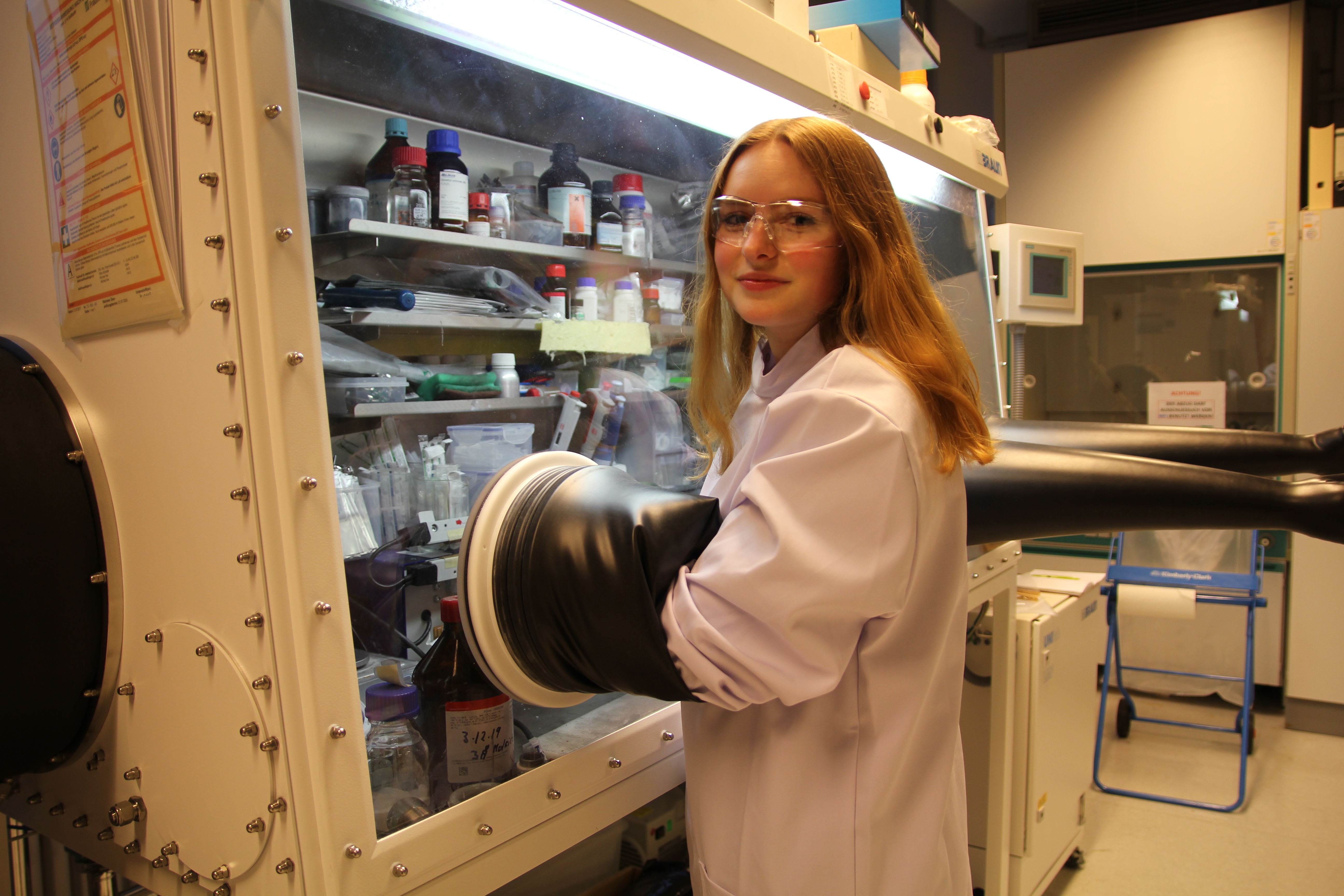An interview with Joana Zöllmer
Volunteer year in science, technology and sustainability - everything you need to know
Women are underrepresented in the so-called MINT subjects (mathematics, computer science, natural sciences and technology) - even though the job market opportunities are excellent. MINT training occupations and courses of study open up a wide range of career prospects, excellent career opportunities and good earning potential. And smart women are needed. On the occasion of the "Girls for MINT" action day, which is organized by the consulting network FRAU & BERUF at Fraunhofer ISIT, we interviewed Joana Zöllmer, who is doing a voluntary year at ISIT.
What inspires you about the model FJN - Volunteer Year in Science, Technology and Sustainability?
What fascinates me most about the concept is that it is a voluntary year in science, technology and sustainability that enables young people to do voluntary service and gain an insight into the natural sciences.
Why did you decide to do this?
I chose this program because I wanted to get a glimpse of the research before a possible study in the natural sciences. Furthermore, the year helps me to orientate and decide on the right study program in this field.
How can you imagine the everyday life of a FJNler?
That cannot be generalized in such a way, since we are accommodated approx. 50 FJNler in completely Germany in the most different employment places and therefore naturally all have a different everyday life. At ISIT the work is very diversified, because my work includes the activities in the chemical laboratory, as well as in the pilot line for the production of rechargeable batteries and the introduction to the whole area of the department battery systems for special applications.
Why did you decide to work at Fraunhofer and especially at Fraunhofer ISIT?
I chose Fraunhofer ISIT because I am very interested in the research field of microelectronics and microsystems technology. However, I am mainly employed in the research group Battery Systems for Special Applications, which is concerned with the further development of lithium ion batteries and other new systems. Because I didn't deal intensively with batteries outside of school, I was very interested and curious what I could learn. I am also from the vicinity of Itzehoe, so ISIT is easy to reach by car.
What was the application process at ISIT like?
Usually the assignment offices are asked whether they are willing to employ FJNler. The Internationale Jugendgemeinschaftsdienste (ijgd) then, if necessary, places young people at the various places of work.
The ISIT had also included the job advertisements on its website. For this reason I applied directly to Fraunhofer ISIT and was invited for an interview. It was really easy to get in contact with Fraunhofer ISIT!
What tips do you give to future FJN members and those who want to become one?
Future FJN members should take a close look at the various job descriptions and apply to the jobs that prepare them most for their studies or training. This is a very good opportunity to gain insights into processes that would otherwise remain hidden.
 Fraunhofer Institute for Silicon Technology
Fraunhofer Institute for Silicon Technology
